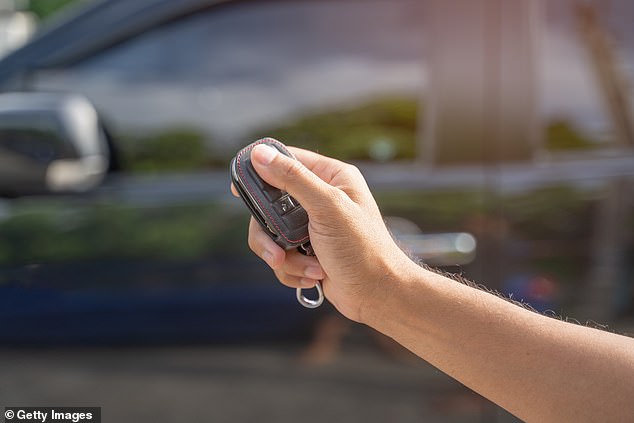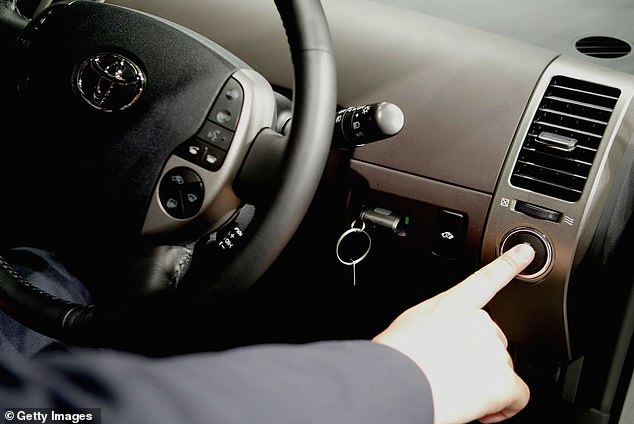Criminals are increasingly targeting keyless vehicles in ‘carhacking’ surge – with one model 60 TIMES more likely to be stolen
Cars with keyless entry are increasingly becoming a target for thieves – with one model in particular danger, experts warn.
As new vehicles have abandoned traditional keys in favor of electronic key fobs or “smart keys,” scammers are breaching the systems built into cars’ communications network.
And according to the latest report of the Institute for Highway Loss Data (HLDI), the Dodge Charger SRT Hellcat is 60 times more likely to be targeted than any other model built between 2020 and 2022.
“If you own a Hellcat, you better check your driveway,” says Matt Moore, senior vice president of HLDI. “These numbers are unbelievable.”
Car theft in general is also increasing in the US. According to the National Insurance Crime Bureau, more than a million vehicles were stolen last year – the highest number since 2008.
According to the latest report from the Highway Loss Data Institute (HLDI), the Dodge Charger SRT Hellcat is 60 times more likely to be targeted than any other model built between 2020 and 2022.
Theft claims for the Charger SRT Hellcat, which starts at about $80,000, were more than 60 times more common than the average for all 2020-2022 models, according to HLDI, compared to their on-road numbers.
The report found that for every 1,000 vehicle years insured, 25 cars were reported stolen in insurance claims.
By comparison, the Infiniti Q60, the most stolen car among 2017-2019 model year vehicles, had just two theft claims per 1,000 vehicle years insured.
Experts warn that criminals are using different methods to hack cars.
One method is known as a “relay attack,” where thieves essentially add an invisible extension cord to a key fob.
Thieves hack the signal produced by a key fob in a home and pass it to a second device held close to the car door.
The car is then tricked into thinking the key is close to the door, and the criminals are able to unlock the vehicle and drive away – all in minutes.
Experts are also warning of a new method known as the ‘CAN bus attack’.

Experts warn that criminals are using various methods to hack cars, including the so-called ‘relay attack’
‘CAN’ stands for ‘controller area network’, and the ‘CAN bus’ is the automotive industry term used to describe the message-based electronic system that allows parts of the car to communicate with each other.
Steve Lobello, owner of S&A Security near Chicago, told me CBS: ‘Probably the most common ones I see are real key programmers that you can just plug into the vehicle’s diagnostic port or into the CAN bus network.’
‘It is actually the nerve center in the vehicle where everything has to be processed. You can do things like remove keys, program new keys and just talk to the car,” he told the outlet.
According to Lobello, the tablets that locksmiths and security specialists use to reprogram key fobs have either been stolen or can be legally purchased online by thieves.

As new vehicles have abandoned traditional keys in favor of electronic key fobs or “smart keys,” scammers are breaching the systems built into the car’s communications network
There are simple steps drivers can take to protect them from “car hacking,” which makes little noise and leaves no broken glass as evidence that a crime has even occurred.
AAA’s Daniel Armbruster told the story CBS Austin: ‘Don’t leave your key fob near the front door.
“When you are at home, keep your car keys or key fob in a metal cabinet or in a device that protects the radio signal from interception.”
If possible, park your car in a locked garage and never leave valuables in your car.
The National Insurance Crime Bureau recommends a “layered approach,” adding physical protections such as steering column locks, alarms and tracking devices.
